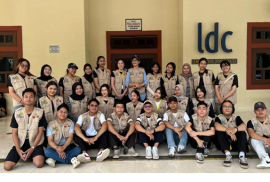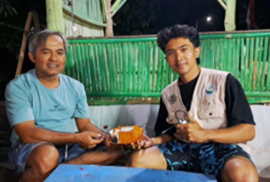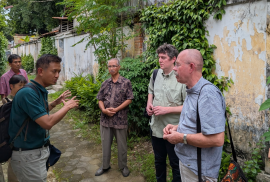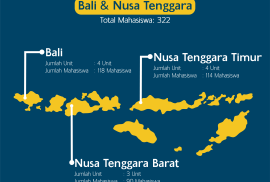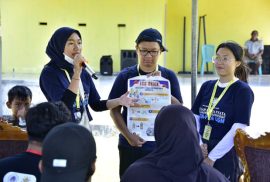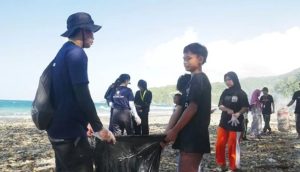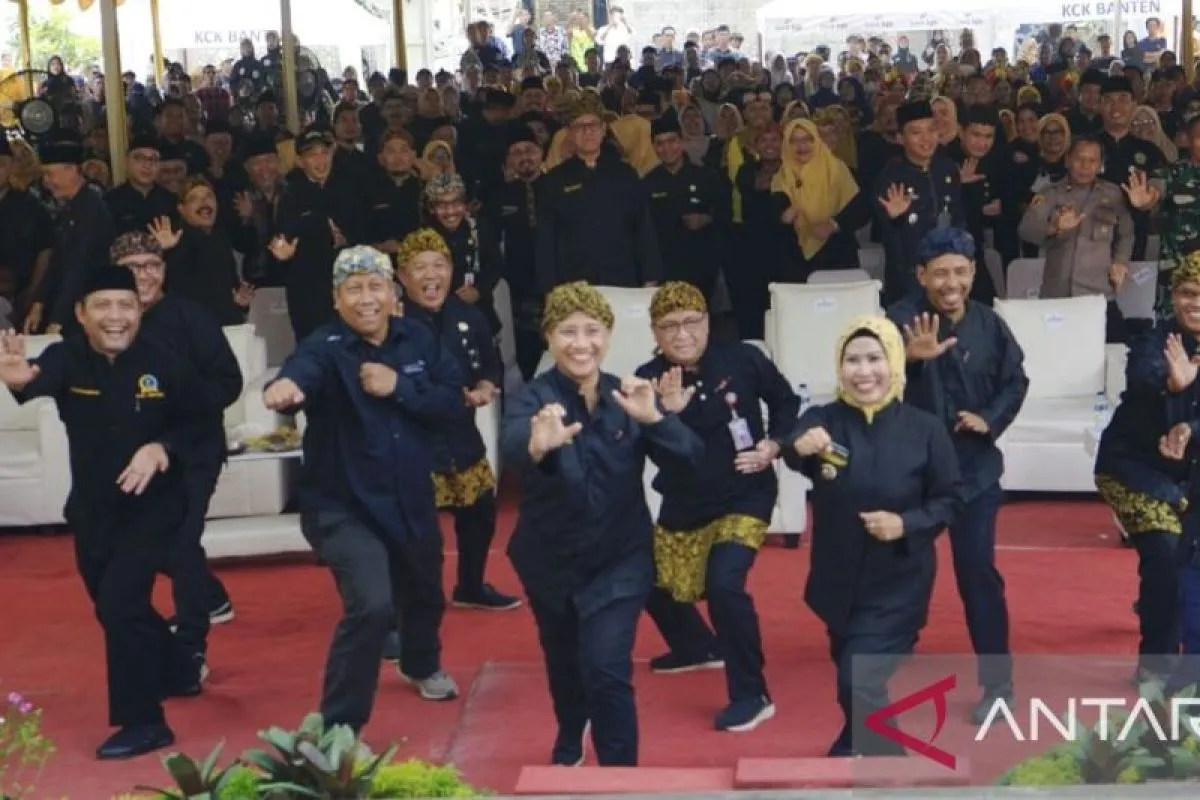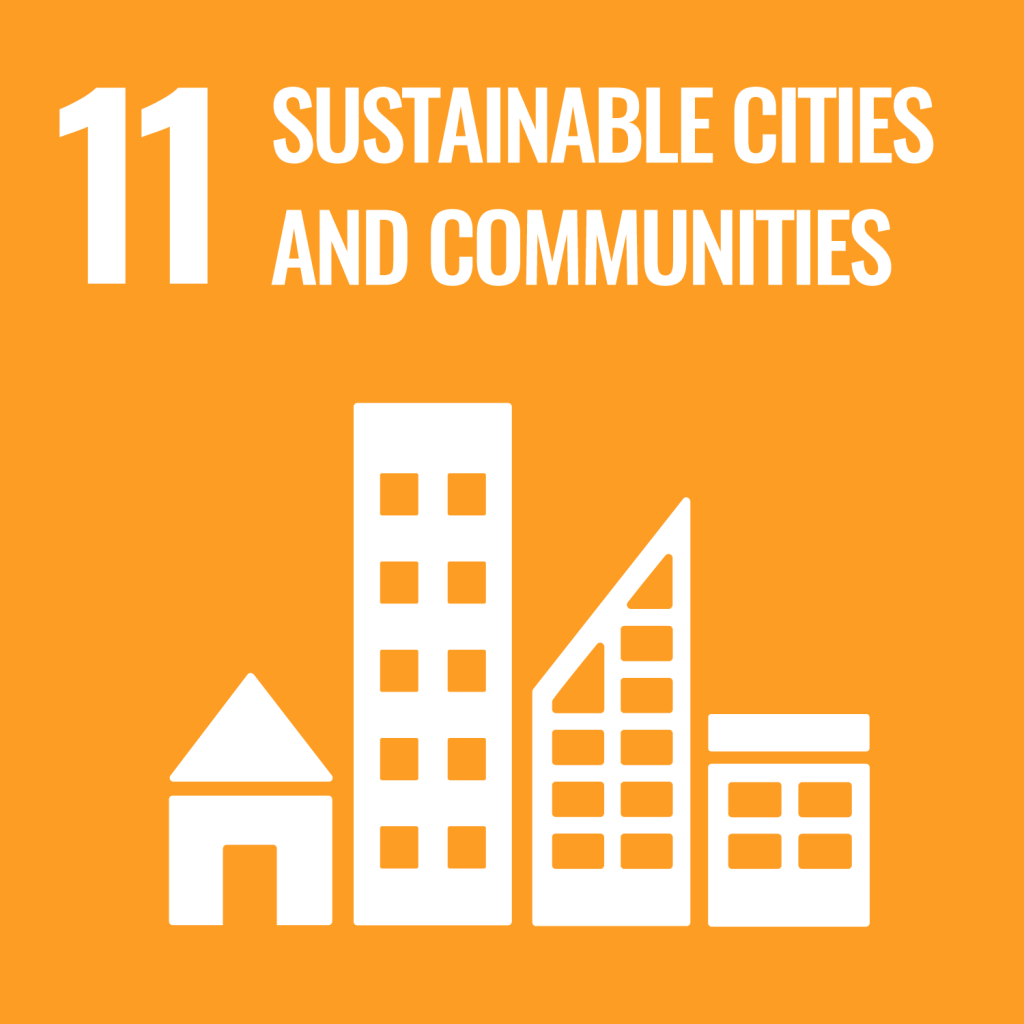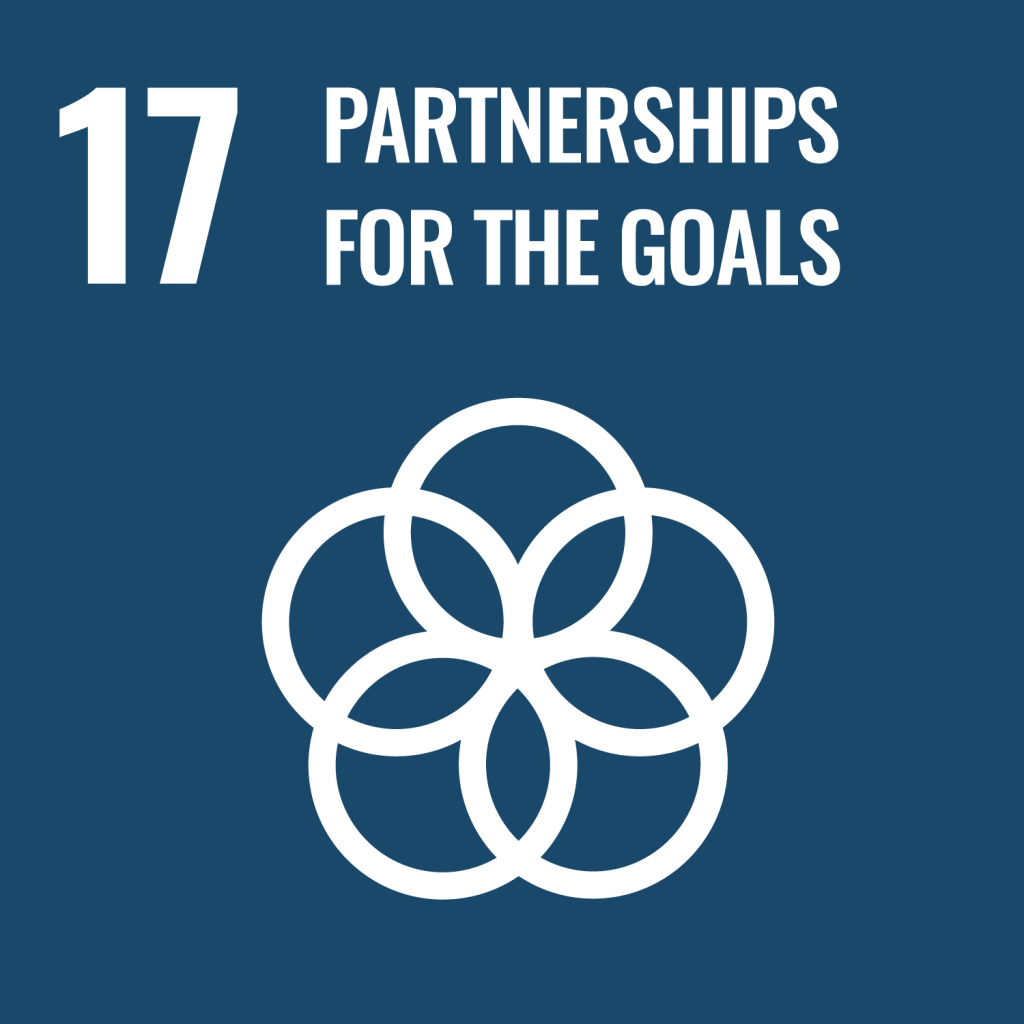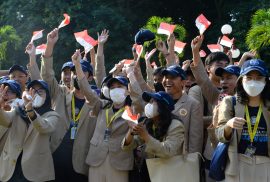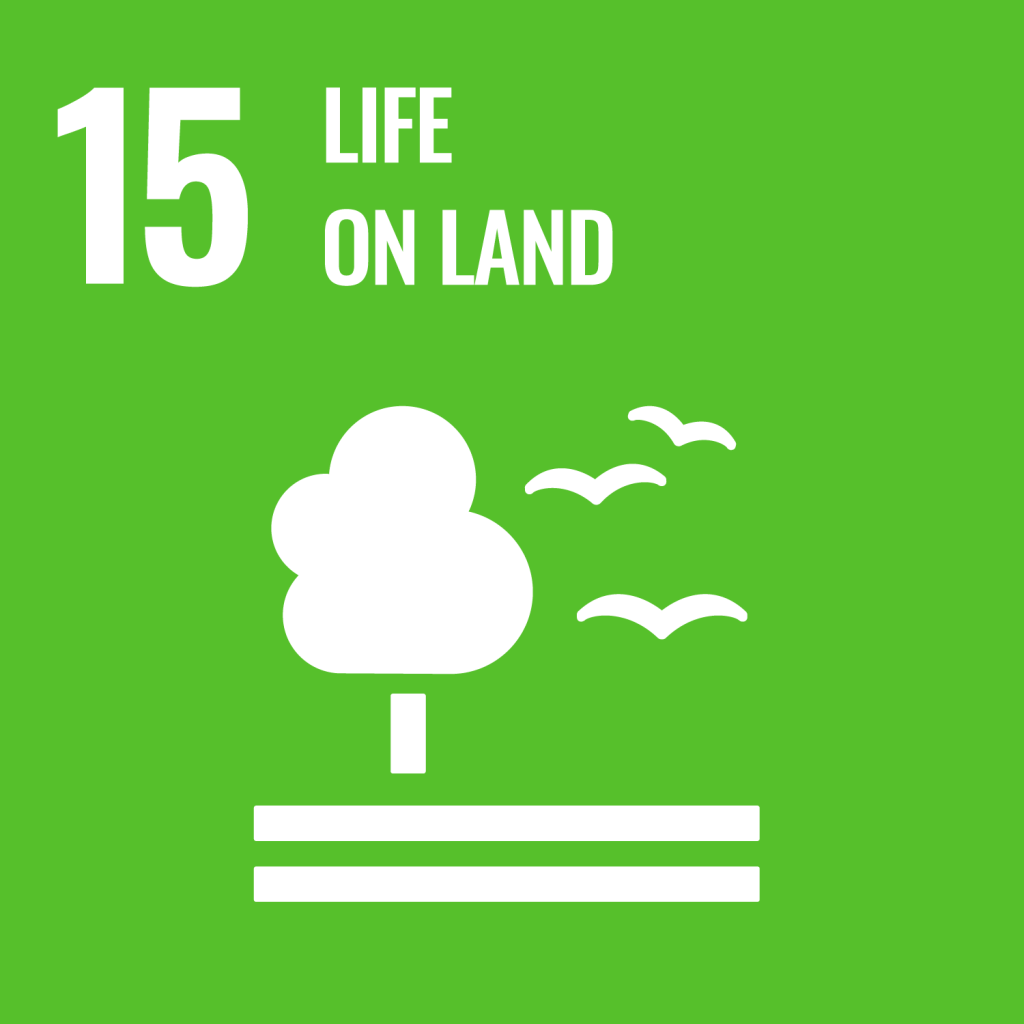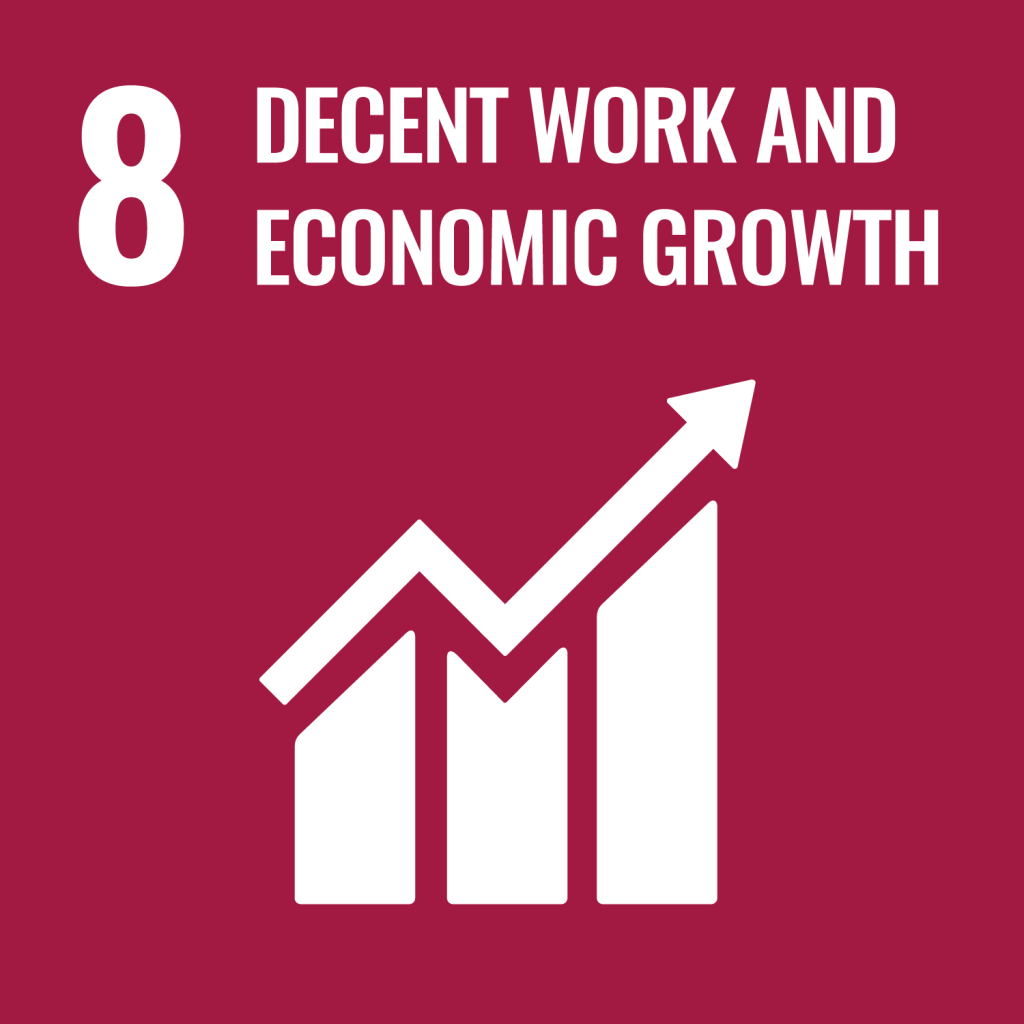UGM Students who performed KKN-PPM program in Baturiti and Kerambitan Village, Bali
Higher education is not just about gaining knowledge in classrooms; it’s also about applying that knowledge to the community. This concept lies at the core of the UGM KKN-PPM Team’s mission in Kerambitan, Tabanan, Bali. The team, working in the villages of Baturiti and Kerambitan, has focused on the theme of empowering and optimizing local resources through the implementation of innovative technology to improve community welfare and promote sustainable development.
The theme chosen by the KKN-PPM UGM team is highly relevant to local needs. Empowerment in this context is aimed at providing the community with access to new knowledge and skills, while resource optimization seeks to maximize the potential of the region’s natural resources, culture, and tourism. By focusing on these areas, the program aims to uplift the local population and create lasting positive change.
Innovative Technology to Drive Local Progress
A key focus of the KKN-PPM UGM team’s work in these villages is the use of innovative technology. The program centers around several important initiatives. The first is the promotion of physical and mental well-being through health synergy programs, which aim to integrate healthcare with community development. In addition, the team has introduced Automatic Weather Stations (AWS) to monitor local weather conditions, allowing farmers and residents to adapt to weather changes, optimize agricultural productivity, and improve disaster preparedness.
Another core aspect of the team’s work is the sustainable management of waste. The introduction of digital technologies aims to help the community reduce waste and move toward a zero-waste model. This focus on sustainability aligns closely with the global goal of reducing environmental impact while fostering local solutions.
Digital Transformation to Boost Local Economic Competitiveness
The KKN-PPM UGM students is also driving digital transformation to enhance the economic competitiveness of the local communities. One of the key areas of focus is the revitalization of agriculture using Internet of Things (IoT) technology to create more efficient irrigation systems. This smart farming solution ensures optimal water usage, improving crop yields and contributing to the sustainable use of local water resources, aligning with SDG 6: Clean Water and Sanitation.
In addition to technology-driven agriculture, the team’s efforts include entrepreneurship training to increase household incomes and improve local businesses. The holistic approach addresses both economic growth and social well-being, emphasizing the importance of a balanced, integrated development strategy.
Health, Education, and Environmental Sustainability for Long-term Impact
Beyond economic improvements, the KKN-PPM program also focuses on enhancing community health, education, and environmental sustainability. The team’s initiatives include health awareness programs, educational workshops on sustainable farming practices, and efforts to improve sanitation and waste management systems in both villages. By fostering a culture of sustainability, the team is helping to build a foundation for long-term, environmentally responsible development.
Through these programs, the KKN-PPM UGM team is working to create a comprehensive model for sustainable development that integrates environmental, social, and economic factors. The goal is not just to improve living conditions in the short term, but to ensure that these improvements are sustainable and that future generations will be able to build upon them.
Sustainable Development for the Future: A Long-term Vision
The long-term vision for the KKN-PPM UGM program in Baturiti and Kerambitan is to create sustainable, community-driven development that aligns with the global goals of the United Nations’ Sustainable Development Agenda. The team’s work in building infrastructure, educating the community on environmentally friendly practices, and encouraging active participation in local decision-making is designed to provide both immediate benefits and lasting change. The hope is that this initiative will inspire and leave a positive, lasting impact on the two villages.
Connecting with the SDGs: Empowering Communities through Technology
This initiative aligns with several key SDGs, particularly SDG 1 (No Poverty), SDG 3 (Good Health and Well-being), SDG 6 (Clean Water and Sanitation), and SDG 8 (Decent Work and Economic Growth). Through its focus on health, technology, entrepreneurship, and environmental sustainability, the program aims to address local challenges while contributing to global development goals. By empowering local communities with the knowledge and tools needed to thrive, the KKN-PPM UGM team is helping to create a more sustainable and prosperous future for the residents of Baturiti and Kerambitan.
Inviting Global Students to Join UGM’s KKN-PPM Program
UGM invites international undergraduate students to participate in the KKN-PPM program and contribute to initiatives like these that foster sustainable development. Students will have the opportunity to engage in impactful community projects, gain hands-on experience in rural development, and learn about the challenges faced by communities in Indonesia. UGM also welcomes professors from around the world to visit and guide their students in these transformative projects. Through KKN-PPM, students and faculty alike will be able to make a meaningful contribution while advancing the global development agenda.
Tags: SDG 11:Kota dan Pemukiman yang Berkelanjutan SDGS 1:Tanpa Kemiskinan SDGS 13:Penanganan Perubahan Iklim SDGS 3 : Kehidupan Sehat dan Sejahtera SDGS 4: Pendidikan Berkualitas SDGS 6:Air Bersih dan Sanitasi Layak SDGS 8: Mendorong pertumbuhan ekonomi inklusif dan berkelanjutan SDGS 9 : Industri _ Inovasi dan Infrastruktur
Author: bil
Contributors: Rif’atul Afifah Zen, Zahra Aisya Rosa Febrianingtyas,

